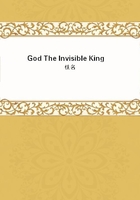
第25章
Professor Murray writes of gregarious animals as though there existed solitary animals that are not gregarious, pure individualists, "atheists" so to speak, and as though this appeal to a life beyond one's own was not the universal disposition of living things. His classical training disposes him to a realistic exaggeration of individual difference. But nearly every animal, and certainly every mentally considerable animal, begins under parental care, in a nest or a litter, mates to breed, and is associated for much of its life. Even the great carnivores do not go alone except when they are old and have done with the most of life. Every pack, every herd, begins at some point in a couple, it is the equivalent of the tiger's litter if that were to remain undispersed. And it is within the memory of men still living that in many districts the African lion has with a change of game and conditions lapsed from a "solitary" to a gregarious, that is to say a prolonged family habit of life.
Man too, if in his ape-like phase he resembled the other higher apes, is an animal becoming more gregarious and not less. He has passed within the historical period from a tribal gregariousness to a nearly cosmopolitan tolerance. And he has his tribe about him.
He is not, as Professor Murray seems to suggest, a solitary LOSTgregarious beast. Why should his desire for God be regarded as the overflow of an unsatisfied gregarious instinct, when he has home, town, society, companionship, trade union, state, INCREASINGLY at hand to glut it? Why should gregariousness drive a man to God rather than to the third-class carriage and the public-house? Why should gregariousness drive men out of crowded Egyptian cities into the cells of the Thebaid? Schopenhauer in a memorable passage (about the hedgehogs who assembled for warmth) is flatly opposed to Professor Murray, and seems far more plausible when he declares that the nature of man is insufficiently gregarious. The parallel with the dog is not a valid one.
Does not the truth lie rather in the supposition that it is not the Friend that is the instinctive delusion but the isolation? Is not the real deception, our belief that we are completely individualised, and is it not possible that this that Professor Murray calls "instinct" is really not a vestige but a new thing arising out of our increasing understanding, an intellectual penetration to that greater being of the species, that vine, of which we are the branches? Why should not the soul of the species, many faceted indeed, be nevertheless a soul like our own?
Here, as in the case of Professor Metchnikoff, and in many other cases of atheism, it seems to me that nothing but an inadequate understanding of individuation bars the way to at least the intellectual recognition of the true God.
6. RELIGION AS ETHICS
And while I am dealing with rationalists, let me note certain recent interesting utterances of Sir Harry Johnston's. You will note that while in this book we use the word "God" to indicate the God of the Heart, Sir Harry uses "God" for that idea of God-of-the-Universe, which we have spoken of as the Infinite Being. This use of the word "God" is of late theological origin; the original identity of the words "good" and "god" and all the stories of the gods are against him. But Sir Harry takes up God only to define him away into incomprehensible necessity. Thus: